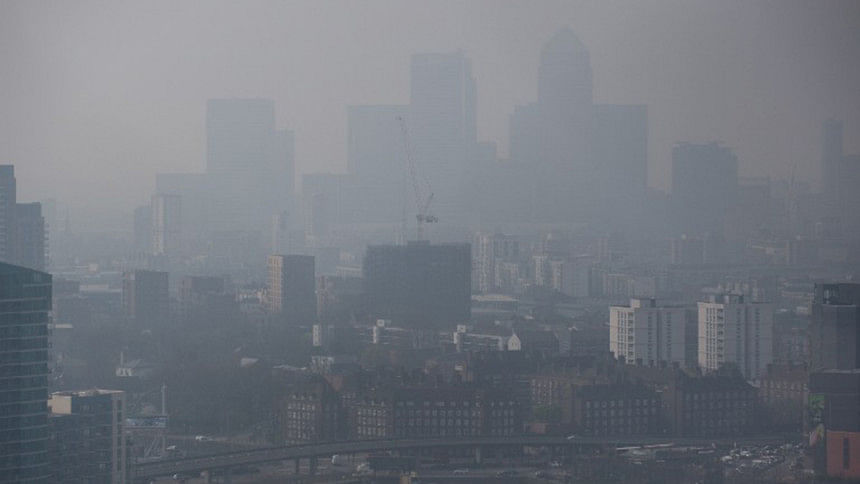New legal threat for UK air pollution

The UK government has been warned to drastically reduce air pollution or face renewed legal action.
In April the Supreme Court ruled an immediate plan was needed after the UK breached EU limits for nitrogen dioxide (NO2).
The government said it was committed to cleaning the air and had delivered its plans accordingly.
But environmental law firm ClientEarth, which took the original case, said the plans still do not protect health.
ClientEarth says the government can and must do better, and it believes the courts will back it again unless the government improves its current policies.
The firm has given ministers 10 days to respond.
Around 40,000 people are estimated to die prematurely every year in the UK because of bad air quality.
Nitrogen pollution from diesel vehicles is creating much of the problem - and this has been exacerbated by the scandal over testing which has made cars appear cleaner than they really are.
Ministers have responded by creating special anti-pollution zones in Leeds, Southampton, Birmingham, Nottingham, Derby and London.
They say they have also committed £2bn from 2011 to improving standards of buses, dustbin lorries and fire engines.
Diesel emissions problem
But they still do not envisage that the air will meet EU health standards around the UK until 2020 - and 2025 in London because of the delay in getting older dirtier vehicles off the roads altogether.
Alan Andrews from ClientEarth told the BBC the government had itself to blame for failing to act sooner against diesel cars.
"Throughout our five-year legal battle the government have claimed they couldn't achieve legal limits because of the problems with the EU standards for diesel vehicles not delivering pollution reductions under normal driving conditions - but they failed to investigate why.
"Then they lobbied the EU to water down new regulations which will require new diesel cars to meet emissions limits on the road. As a consequence, new diesel cars will be able to emit double the emission limit until 2021."
The involvement of diesel cars has caused discomfort for the government, which has long incentivised drivers to buy diesel vehicles because they produce less of the CO2 emissions that cause climate change.
A government spokesman said: "Our plans clearly set out how we will improve the UK's air quality through a new programme of Clean Air Zones, which alongside national action and continued investment in clean technologies will create cleaner, healthier air for all."

 For all latest news, follow The Daily Star's Google News channel.
For all latest news, follow The Daily Star's Google News channel. 








Comments